Ruth Downie - Tabula Rasa
Здесь есть возможность читать онлайн «Ruth Downie - Tabula Rasa» весь текст электронной книги совершенно бесплатно (целиком полную версию без сокращений). В некоторых случаях можно слушать аудио, скачать через торрент в формате fb2 и присутствует краткое содержание. Год выпуска: 2014, ISBN: 2014, Издательство: Bloomsbury USA, Жанр: Исторический детектив, на английском языке. Описание произведения, (предисловие) а так же отзывы посетителей доступны на портале библиотеки ЛибКат.
- Название:Tabula Rasa
- Автор:
- Издательство:Bloomsbury USA
- Жанр:
- Год:2014
- ISBN:9781620403235
- Рейтинг книги:5 / 5. Голосов: 1
-
Избранное:Добавить в избранное
- Отзывы:
-
Ваша оценка:
- 100
- 1
- 2
- 3
- 4
- 5
Tabula Rasa: краткое содержание, описание и аннотация
Предлагаем к чтению аннотацию, описание, краткое содержание или предисловие (зависит от того, что написал сам автор книги «Tabula Rasa»). Если вы не нашли необходимую информацию о книге — напишите в комментариях, мы постараемся отыскать её.
Tabula Rasa — читать онлайн бесплатно полную книгу (весь текст) целиком
Ниже представлен текст книги, разбитый по страницам. Система сохранения места последней прочитанной страницы, позволяет с удобством читать онлайн бесплатно книгу «Tabula Rasa», без необходимости каждый раз заново искать на чём Вы остановились. Поставьте закладку, и сможете в любой момент перейти на страницу, на которой закончили чтение.
Интервал:
Закладка:
It took several tries before they realized they must explain at the beginning that Enica was not there to blame or accuse. She was offering concerned neighbors a chance to help by tracing the real source of the rumor before the child snatcher did. But the rumor had begun its journey several days ahead of them. It had already passed around hearths and over bar tables and market stalls and across boundary walls and even-how things had changed since her parents’ day!-between locals lazing in the bathhouses at forts farther along the wall.
The slave followed them around with no sign of cheering up or of understanding anything that was said in British, so they called him by his real name to his face and Dismal to each other. Tilla had tried explaining to him that if he heard a horn he was to say so, because it might be the signal that Branan had come home. “Or it might be a war horn,” added Tilla, irritated by his glum face and sullen speech. “The signal for our warriors to rise up and throw your masters back into the sea where they came from.” Even then there was no reaction. Perhaps he believed her.
Some of the people they met were suspicious of the military brands on the horses’ shoulders. For the same reason they were twice stopped and questioned by army patrols and had to appeal to Dismal to confirm that the horses were not stolen.
Enica said little as they rode along the lanes and down the narrow twisting tracks, except to call out for her son. Tilla doubted he was close enough to hear. While every stone wall, every wooded valley, every ditch or patch of reeds, could be concealing him, any thief with any common sense would have got him well clear of here long ago, knowing people would be searching. Still, Enica looked more alive now that she had gained some sort of purpose.
They left the shelter of the trees and turned left onto the main road with Tilla urging her horse on in front and the slave bringing up the rear. The wind was gusting in from the west, cooling their faces with a light drizzle. They cantered as far as the shortcut by the burned ash tree, where they had to slow again for the horses to pick their way along the stony ground. In the distance Tilla could make out the overgrown ruins of a farm that might have been abandoned by choice, or more likely during the troubles. She thought again about the conversation with Senecio at the fort earlier this morning.
The tune he had been singing was one she had learned from her mother: a very old song about the offering of one man in order to save a people. Not a murder, but a human life sacrificed in the way it had always been done: through the threefold death. She had crouched down beside him and joined in, very softly, with one hand on his arm. When it was over he murmured, “I am lacking in courage, child.”
“I do not think so.”
He shook his head. “My two older boys believed the gods were with us,” he said. “My boys believed it was the time to rise up. I told them yes, this is the time. Because that was what we wanted to believe.”
“Your boys were heroes.”
His laugh was bitter. “No matter how many you kill, the Romans still have more soldiers to send.”
“They have an empire. We are a scattering of tribes.”
“We showed them, though. For a while.”
“We did,” she agreed, wondering if he really believed the price had been worth it.
He said, “I will not lose another son to them.”
“Everyone is helping, Grandfather. Today I am taking Enica out looking.” She sensed he did not want a complicated explanation about rumors and sources.
He nodded slowly. “You have grown up well, Daughter of Lugh. Your mother would be proud.”
The words warmed her inside, even if she could not imagine Mam ever approving of her marrying a Roman. She wanted to hear them again, but a group of soldiers was marching past, and then while she was still repeating them in her mind she heard Senecio say, “It may be the only way to find Branan.”
The sky-blue eyes looked into her own. The warm feeling faded as quickly as it had come, replaced by a stillness, as if the gods had stopped their business to listen.
Tilla said, “The threefold death?”
“We must try everything else first,” he said. “But I will not lose another son to them.”
Senecio, who had wanted no more killing.
Tilla urged her shambling mount into a livelier walk. Surely the old man had not meant it? The threefold death was a thing of the past: something to sing about, not to do. Besides, how would he find a victim? Perhaps he had not thought of that. Worse, perhaps he had. Perhaps he already had someone in mind.
Holy Christos, she prayed, because Christos was one of the gods who could listen anywhere, let it not come to that. Help us find Branan before it comes to that.
“They are searching the hill,” Enica said, pointing.
A few hundred paces to the east, Tilla could make out eight or nine of their own people strung out across a slope of common land, forcing their way through tall bracken that nobody had harvested. Through the veil of drizzle she could see distant arms rise and fall as they beat a path. From time to time one of them would stop and crouch down for a better look at something. Tilla found she was holding her breath with each pause. Find him. Find him now. Do not let the old man do something that will never be forgiven. But every time, the searcher straightened up and moved ahead to keep in line with the others.
Tilla glanced across at Enica, who was no longer watching. Instead she cupped a hand around her mouth and shouted, “Branan! Branan, where are you? It’s Mam come for you!”
The piebald horse tossed its head at the sound, and the dying hedge brambles swayed in the breeze. The women rode on.
Of the few children they saw in the lanes and the fields, none were alone and several were seized by their mothers at the approach of strangers, the women showing everyone how fiercely they would defend their young if anyone came too close. A couple of children were armed with sticks.
Tilla had given up trying to argue with the people who told them the army had hidden Branan themselves as revenge for that wife beater being dangled upside down. Nobody suggested what Tilla privately thought more likely: that the boy’s disappearance might have something to do with a jealous older brother. When she asked whether it was possible that Branan might have been taken by a local person, Enica was both shocked and dismissive. Every parent they met was warning children to keep away from strangers. Especially soldiers.
Several people complained that children were no longer available to run errands or fetch water on their own. One father even wanted to know if he could claim compensation from the army if he had to put his sheep onto winter feed this early in the season. Watching far too many ewes trying to nibble the last blades of grass in a bare paddock, Tilla protested, “But there is grass still up on the common land. I have seen it.”
“Exactly!” exclaimed the father, as if she had just proved his point. “It’s no use to me up there, is it? Not if I can’t send the children out to shepherd. You go and ask your husband: Whose fault is that? The army’s!”
So far no one they spoke to had been approached by anyone else trying to track down the source of the rumor. Tilla was not sure whether this silence was good news or just a sign that they were on the wrong trail altogether. She said nothing of this to Enica, who seemed to be clinging as tightly to the hope of this search as she was to the saddle of the piebald horse every time it went faster than a walk. Tilla had wondered out loud if she should have asked for a cart instead, but Enica insisted she was fine: just a little out of practice. Indeed after a while she did seem to remember how not to bounce about uncontrollably during the trot.
Читать дальшеИнтервал:
Закладка:
Похожие книги на «Tabula Rasa»
Представляем Вашему вниманию похожие книги на «Tabula Rasa» списком для выбора. Мы отобрали схожую по названию и смыслу литературу в надежде предоставить читателям больше вариантов отыскать новые, интересные, ещё непрочитанные произведения.
Обсуждение, отзывы о книге «Tabula Rasa» и просто собственные мнения читателей. Оставьте ваши комментарии, напишите, что Вы думаете о произведении, его смысле или главных героях. Укажите что конкретно понравилось, а что нет, и почему Вы так считаете.
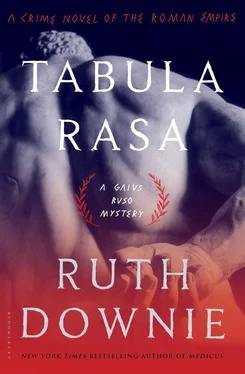


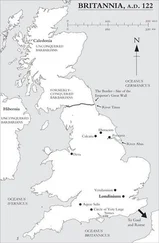
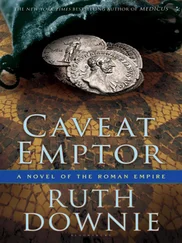
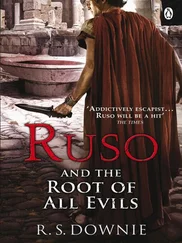
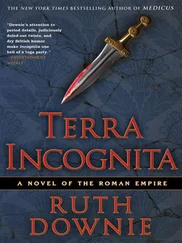
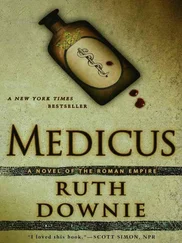
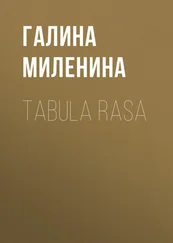
![Антон Архангельский - Tabula Rasa - Исходная точка [калибрятина]](/books/392380/anton-arhangelskij-tabula-rasa-ishodnaya-tochka-k-thumb.webp)


